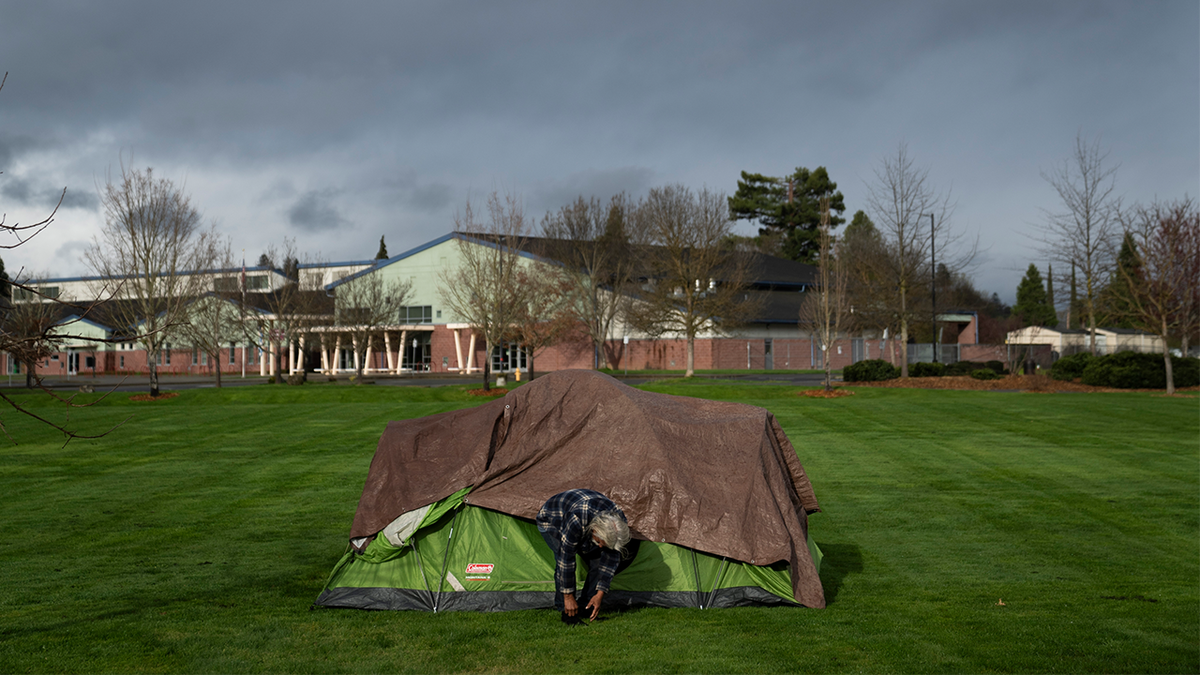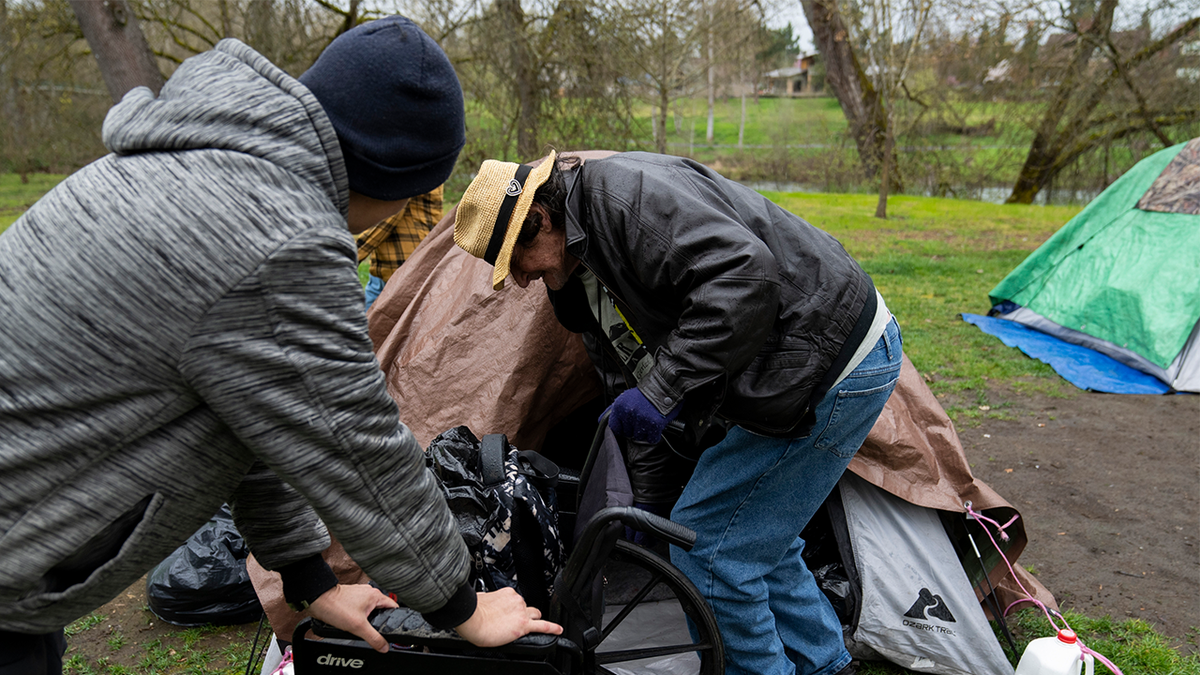The judge prohibits the city of Oregon, at the Scottz Center for displacement from imposing a ban on camps

[ad_1]
Oregon’s judge issued a preliminary order to obscure a rural city at the United States Supreme Court Ruling Center regarding the displaced camps for imposing camping restrictions unless certain conditions are met.
On Friday, the Josephine District Court judge Sarah McLengelin ruled that the grant corridor should increase the ability in the sites that the city agreed to camp and ensure that the sites are physically available to persons with disabilities.
If the city fails to fulfill these conditions, the judge’s order prevents the city from referring to or arresting people or its dignity due to camping over public property. It also prevents the city from forcing people to leave the camps, from removing the camps that have not been clearly abandoned or from the camping prohibition in most of the city’s gardens.
The city may still impose the rules for the ban on the sidewalks, streets, or alleys and entrances.
The CA mayor declares the displacement “cannot be an option,” suggested that those who reject shelter over and over again.

With the Fruitdale Elementary School in the background, a homeless man seizes his shoes in Fruitdale Park, March 23, 2024, in Grants Pass, Oregon. (AP)
Mayor Clint Sherf told Associated Press that he was “disappointed” by the judge’s order. The city’s information coordinator, Mike Zakino, told the city that the city “has declined all aspects to ensure the best decision to our community.”
The lawsuit that ignited the case, which was filed by deficit in the state of Oregon, argued that the city was distinguished against persons with disabilities and violating the state law, which requires the camping regulations to be “objective.” Five people were homeless from the prosecutors.
Pass Pass has struggled for years to deal with the homeless crisis and has become a symbolism of the national debate on how to respond to this issue. Several gardens, in particular, have seen camps affected by drugs and garbage.
Frimont, California-another city seeks to deal with the homeless crisis-acknowledged one of the most anti-chosen camps in the country last month, as the camp was banned from any public property and exposes any person “caused, allowed, or about, or a” $ 1,000 or up to six months in prison.
Last summer, the US Supreme Court ruled in a case lifted by the city that societies could prohibit sleep abroad and the people who violate the ban, including when there is enough shelter beds.

The volunteer sticks to a wheelchair where they help Max Harvertet in his tent after being transferred from one garden to another on Saturday, March 23, 2024, in Grants Pass, Oregon. (AP)
The Supreme Court’s decision canceled the decision of the Court of Appeal that the camping ban that was applied when the shelter area is not sufficient to a severe and unusual punishment under the eighth amendment to the American constitution.
In the wake of the Supreme Court ruling, the grant grants were banned on all property in the city except for the sites set by the city council, which created two sites for hundreds of homeless in an attempt to remove them from the gardens.
After taking office this year, the new mayor and members of the new council moved to close the largest signatories, which included approximately 120 khima, according to the lawsuit. The running hours of the smaller site were also reduced between 5 pm and 7 am
Both sites were often crowded, with bad conditions and cannot be accessed for people with disabilities due to loose gravel, according to the complaint.
“It is unreasonable for me to allow people to live there like this,” said Evra Nicholas, a member of the city council before voting to close the largest site.
California passes a homeless camp on all public property

Vehicles are driving on Rogue River High River River with light shed on the area on March 23, 2024, in Grants Pass, Oregon. (AP)
Click here to get the Fox News app
After filing the lawsuit, the city was reopened, a second smaller site and expanded the time when people can stay on the site up to four days.
McGlaghin command states that the city must increase the ability to be before it was closed the largest site.
Tom Steinson, Deputy Legal Director for A disability rights in Oregon, praised the ruling.
“This is not a fundamental solution,” he told Associated Press. “
The Associated Press contributed to this report.
